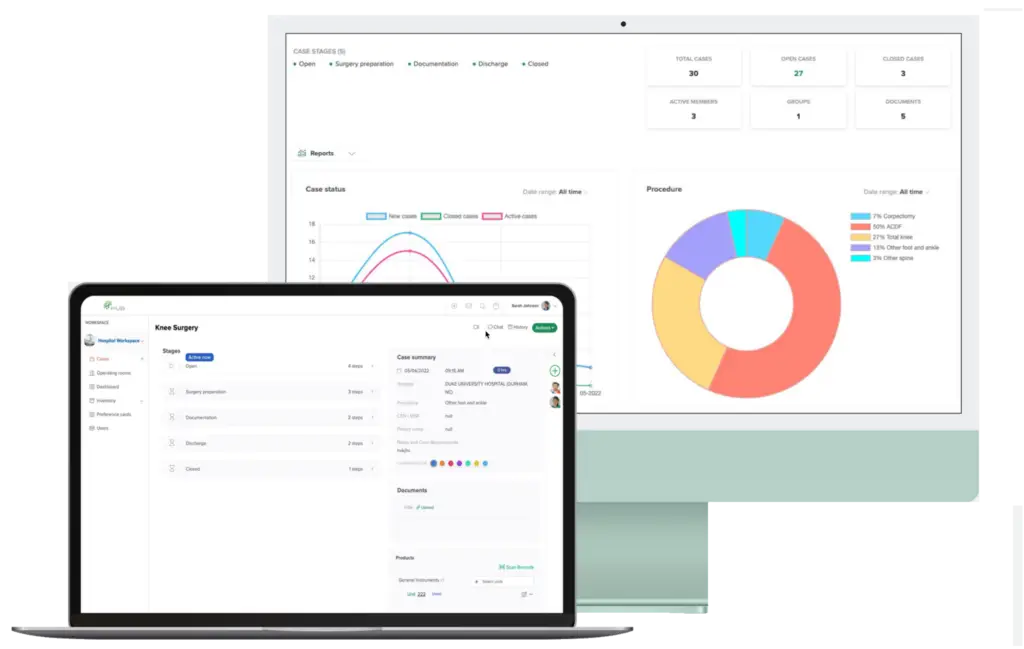Surgical case cancellations can be a significant issue for healthcare facilities, leading to wasted resources, increased costs, and decreased patient satisfaction. Utilizing advanced software solutions can help reduce cancellations by improving scheduling efficiency, communication, and overall workflow. This article will explore how software can help reduce surgical case cancellations and enhance the operational efficiency of healthcare facilities.

Key Factors Leading to Surgical Case Cancellations
Patient-Related Issues
- Incomplete Preoperative Preparation: Patients may fail to follow preoperative instructions, such as fasting or medication adjustments.
- Health Complications: New or unresolved health issues can arise, making surgery unsafe.
Administrative and Scheduling Problems
- Overbooking or Double-Booking: Mismanagement of schedules can lead to conflicts and cancellations.
- Last-Minute Changes: Changes in schedules or patient conditions can disrupt the planned surgeries.
Resource and Equipment Availability
- Equipment Malfunctions: Unavailability or malfunction of surgical equipment can cause cancellations.
- Staffing Shortages: Lack of available surgical staff, anesthesiologists, or nurses can lead to cancellations.
How Software Can Help
1. Centralized Scheduling Systems
Centralized scheduling software helps manage surgical appointments, staff assignments, and resource allocation efficiently. By providing a unified platform, it reduces the risk of overbooking and scheduling conflicts.
- Real-Time Updates: Allows for immediate updates and changes, reducing the risk of last-minute cancellations.
- Conflict Detection: Automatically detects scheduling conflicts and suggests alternatives.
2. Preoperative Management Tools
Software can automate and streamline preoperative management, ensuring that patients are adequately prepared for surgery.
- Automated Reminders: Sends reminders to patients about fasting, medication, and preoperative tests.
- Checklists: Provides digital checklists for patients and staff to ensure all preoperative requirements are met.
3. Communication Platforms
Effective communication is crucial for preventing surgical cancellations. Integrated communication platforms ensure that all team members are informed and up-to-date.
- Instant Messaging: Facilitates real-time communication between surgical teams and administrative staff.
- Patient Portals: Allows patients to communicate directly with their healthcare providers and access important information.
4. Inventory and Resource Management
Automated inventory management systems ensure that all necessary equipment and supplies are available for surgeries.
- Real-Time Tracking: Monitors the availability of surgical instruments and supplies, preventing last-minute shortages.
- Automated Reordering: Automatically generates purchase orders when inventory levels fall below a certain threshold.
5. Data Analytics
Data analytics tools help identify trends and areas for improvement in the surgical scheduling process.
- Performance Metrics: Tracks key performance indicators (KPIs) such as cancellation rates, reasons for cancellations, and resource utilization.
- Predictive Analytics: Uses historical data to predict potential issues and optimize scheduling.
Real-World Examples
Example 1: Reducing No-Shows at Cary Ortho
Cary Ortho implemented a centralized scheduling system and automated reminders for patients. This led to a significant reduction in no-shows and last-minute cancellations, improving overall efficiency.
Example 2: Improving Resource Management at Summit Ortho
Summit Ortho used an inventory management system to track surgical instruments and supplies in real-time. This ensured that all necessary resources were available, reducing the risk of cancellations due to equipment shortages.
Conclusion
Utilizing software solutions can significantly reduce surgical case cancellations by improving scheduling, communication, resource management, and patient preparation. By adopting these advanced tools, healthcare facilities can enhance operational efficiency, reduce costs, and improve patient satisfaction.
How HUB Healthcare Can Help
HUB Healthcare offers a comprehensive solution designed to enhance communication in healthcare, streamline care coordination, and improve overall workflow efficiency. Our platform includes features such as medical case management software, healthcare document management, and healthcare analytics to ensure that all aspects of patient care are optimized. By leveraging HUB Healthcare’s robust tools, organizations can reduce workflow bottlenecks, automate repetitive tasks, and facilitate better collaboration among healthcare providers. This not only improves work quality but also enhances patient outcomes, making HUB Healthcare an essential partner in achieving healthcare excellence.





